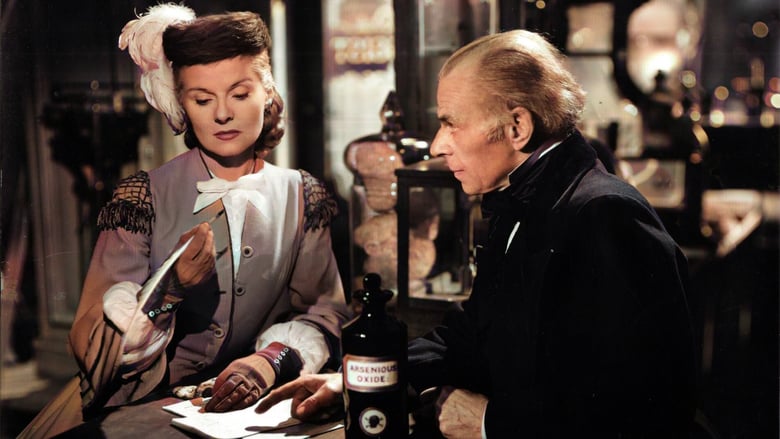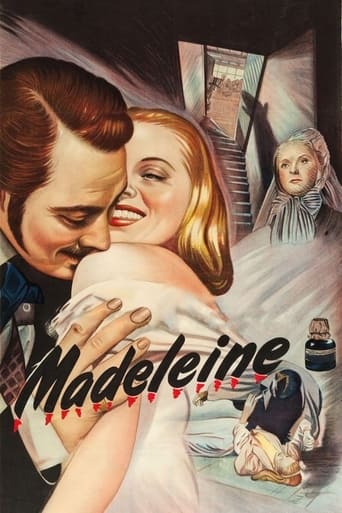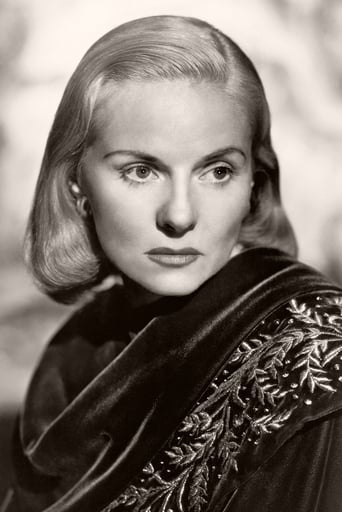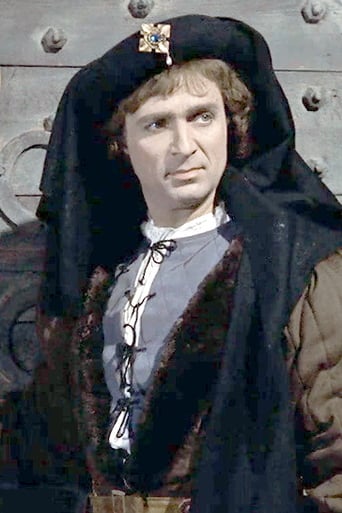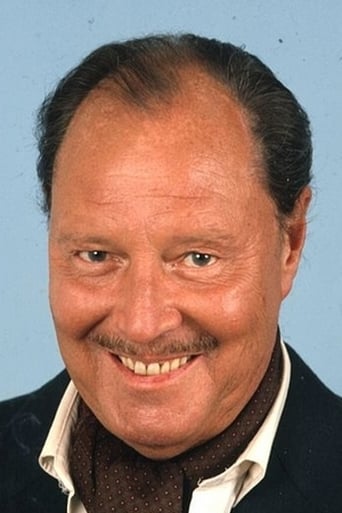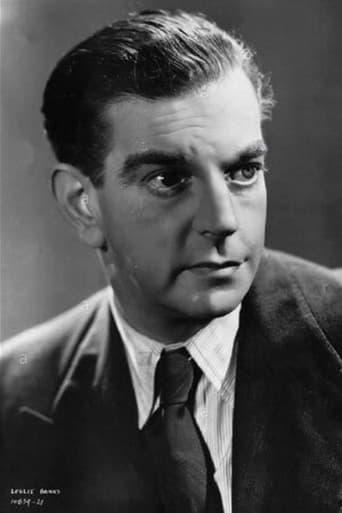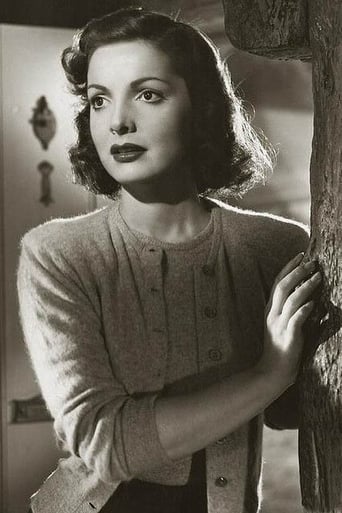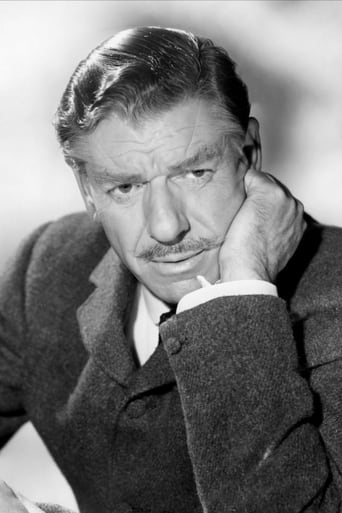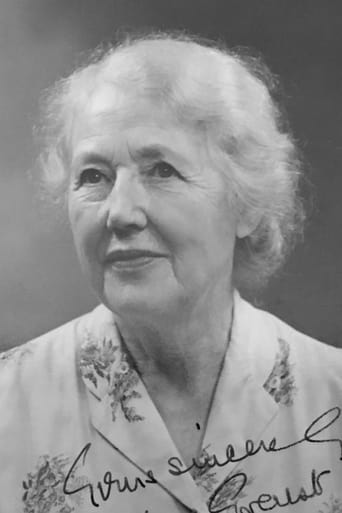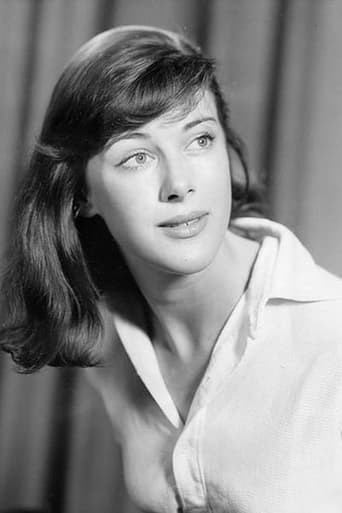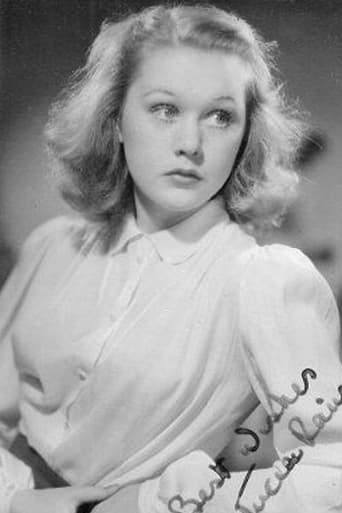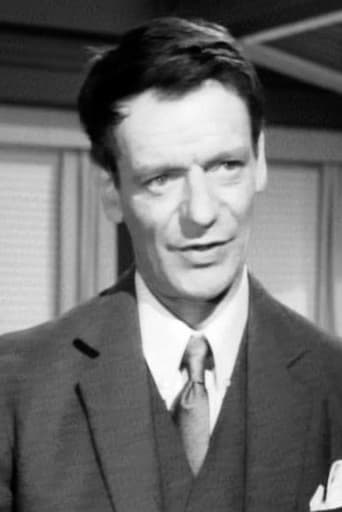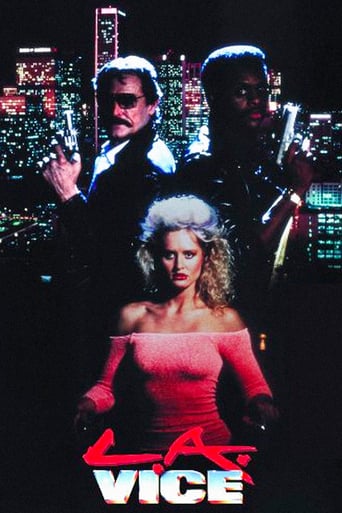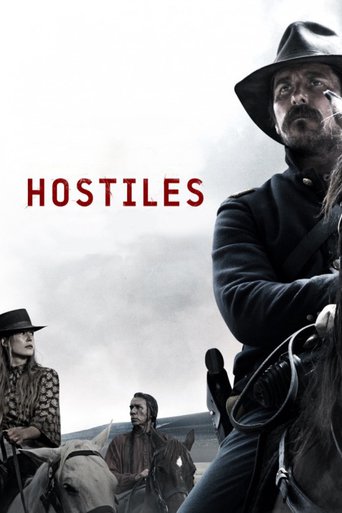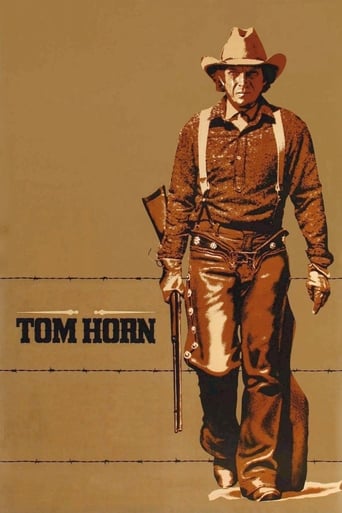Watch Madeleine For Free
Madeleine
The middle-class family of a young woman cannot understand why she delays in marrying a respectable young man. They know nothing about her long-standing affair with a Frenchman.
| Release : | 1950 |
| Rating : | 6.9 |
| Studio : | Cineguild, J. Arthur Rank Organisation, |
| Crew : | Set Decoration, Director of Photography, |
| Cast : | Ann Todd Norman Wooland Ivan Desny Leslie Banks Elizabeth Sellars |
| Genre : | Drama Crime Mystery |
Watch Trailer
Cast List



Related Movies
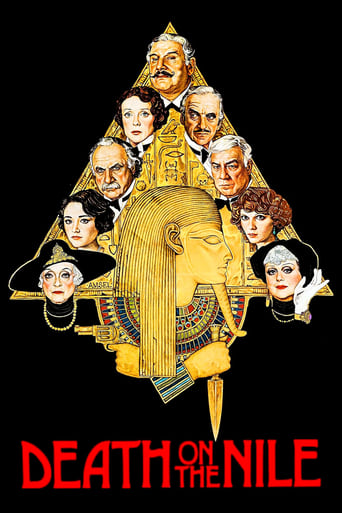 Death on the Nile
Death on the Nile
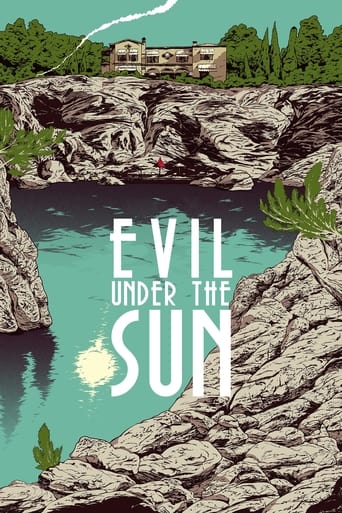 Evil Under the Sun
Evil Under the Sun
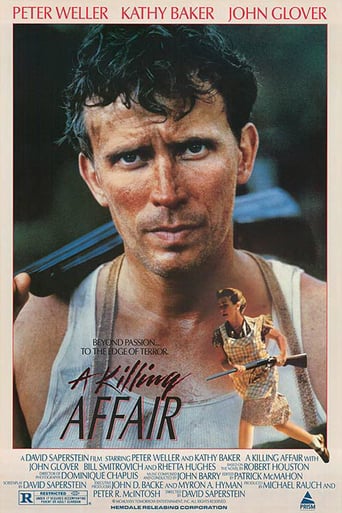 A Killing Affair
A Killing Affair
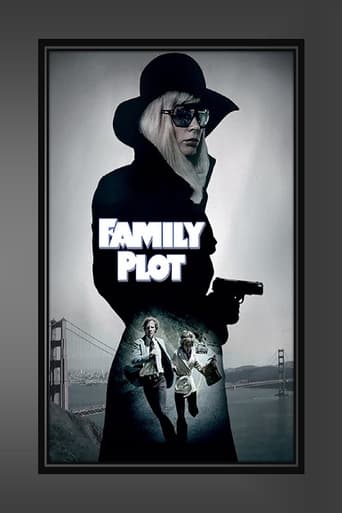 Family Plot
Family Plot
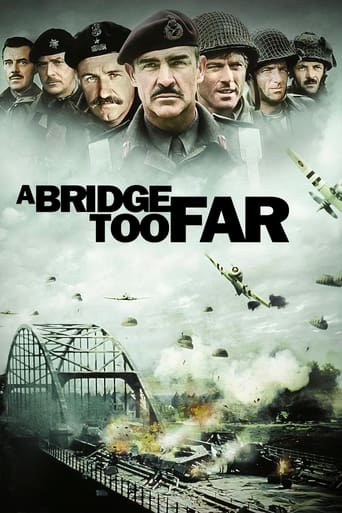 A Bridge Too Far
A Bridge Too Far
 Into the Wild
Into the Wild
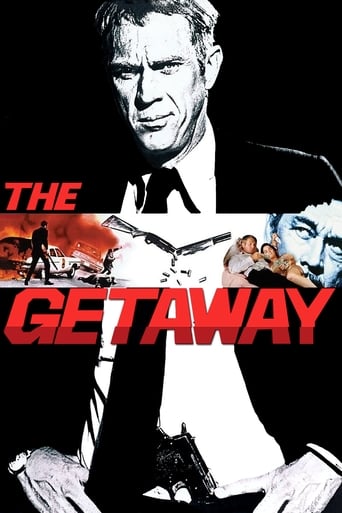 The Getaway
The Getaway
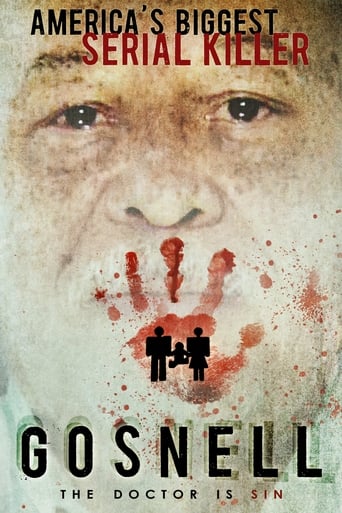 Gosnell: The Trial of America's Biggest Serial Killer
Gosnell: The Trial of America's Biggest Serial Killer
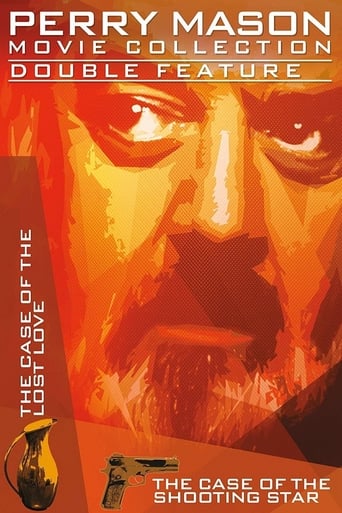 Perry Mason: The Case of the Shooting Star
Perry Mason: The Case of the Shooting Star
Reviews
If you don't like this, we can't be friends.
Highly Overrated But Still Good
Good movie but grossly overrated
Absolutely Brilliant!
As you will know from reading other reviews this film is based on a true crime from Scotland in the 1850's.The question is: what does David Lean make of this material? At first he seems to be making a study of the repression of women in Victorian society. Madeleine Smith's life at home is dominated by a stern father who expects his daughters to do their duty by him, even changing his shoes! The bars on Madeleine's bedroom windows are a not too subtle symbol of her caged existence. A breath of freedom and excitement seems to come in the form of a lover, but even he just wants to use Madeleine to advance his social position and can be brutal when his ambition is frustrated - he is certainly not a romantic hero. It is interesting that on the two occasions when we can clearly infer he and Madeleine make love (the first time against the background of a Scots ceilidh, which makes for some very erotic imagery), it is done from a position of dominance on his part, he is literally standing over her.The man Madeleine is expected to marry seems honourable and decent, but he too will prove incapable of loving her as a real person - she must be flawless. When the lover turns to blackmail it seems Madeleine has no way out but to turn to poison.Now the film becomes a courtroom drama. Do we want to see Madeleine acquitted or not? Did she poison Langelier? The end of the film answers this question with an enigmatic smile into the camera from Ann Todd (the 'fourth wall' is broken several times in the film).What we are left with, then, is a film which appears to start from a feminist viewpoint, then becomes a romance, then a crime procedural. From being deeply involved in Madeleine's story, we become distant from her when she is charged with murder. Ultimately we don't really care about her fate, and an unsolved crime is always strangely unsatisfying.There are some great moments of cinematography (particularly deep-focus photography) and image-making here, but the film is not quite a satisfying whole, with too many loose ends (her family's reaction, for example; I'm sure 'Papa' was outraged but he still provided the best lawyer he could find) to make a rounded drama.
It is ironic that this movie is based on real events and the names have not been changed yet perversely - especially for the time - director Lean declines to show how the two lovers from such disparate backgrounds ever got together in the first place. Instead, we are presented with a fait accompli - they are an item end of story. This really isn't good enough more so since Lean does go out of his way to portray Mr Smith as a martinet in the Moulton Barratt mould and it's is almost impossible to believe that Madeleine would have had sufficient freedom to become acquainted with her low-born French lover. Yet because it is a true story they clearly did meet and fall in love in greatest secrecy and it is surely not asking too much to let us in on the facts. The first half is pure Washington Square with a plain but wealthy girl being seduced by a good-looking pauper intent on social climbing but then it becomes something else entirely once arsenic rears its ugly head. Credibility is strained again when the friend who shares a room in the rat-hole in which the lover lives informs Mr Smith that he is attached to the French Consul. Of course you are, Froggy, all Consul employees live in rat-holes, natch. There's even a nod to a previous Todd box-office hit when her lover - who always carries a cane - asks her to play the piano for him, stopping short of adding if you won't play for me you'll play for no one. The direction is competent but no better than ho hum and that goes for the acting as well.
David Lean is one of those directors who I don't quite know how to 'take'. Watching the 'lesser' films of a great director (in a great box set I got this year) is no doubt an excellent way to decide what you really think about them. The awe (or boredom) inspired by the best-known and allegedly the best-loved works is absent; you watch with completely open, unaffected eyes. Thus "Madeleine": I knew nothing about the (true) story on which it is based, and was gripped by a thoroughly sinister and tense story from first to last. I won't cover the story - it's been done so well by other reviewers.The best parts of a 'minor' film like this stand out all the more strongly for there being no expectation that you should fall on your knees over it. Where a minor director would direct a film of a true story in stocky, reliable fashion, a great director adds flourishes not merely ornamental that truly raise the film to a greater status. The tension is ramped up more effectively; the bitter consequences of the rash acts more bitter; the harm, the joy, the cause-and-effect more meaningful. Lean's control of sound, vision, story, pace here these mark him out as great and bring to mind at their best the way that Kurosawa tells a story. I'm not comparing them they're so different except in the ways that, as the saying goes, it really is all in the detail.Ann Todd plays the temptress Madeleine and my goodness, what a sharp-faced little thing! As much of greed and spoilt willfulness in her wayward course as of real, true love. That her love cools so quickly when she realises (really, didn't she before?) finally that her lover will only take her WITH her money, means that there's really not that much sympathy with her plight. One look at her lover (and this really should be to the credit of the actor) is enough to tell you that he is vain, dandyish, idle, assuming, selfish and too proud for his own good. One look at her is enough to tell you that she usually gets what she wants despite being at least superficially afraid of her father.The scene where Madeleine dances with her lover in a garden, intercut with scenes of the wild ceilidh going on down the hill, whose music provides her ambiance, is absolutely extraordinary, and reminds me of the masterful use of sound and music displayed in Kurosawa's "The Bad Sleep Well" (particularly, the funeral scene). Lean beat the censors in telling his story the way he did, and he shows great control in his racking up of the tension throughout the story.It's also a real pleasure to see some great Scottish actors that appeared in other films of this period which I adore: Jean Cadell, who appears in "Pygmalion" which Lean edited and "I Know Where I'm Going!", and John Laurie (also in "I Know Where I'm Going!" and in "Major Barbara").The transformation of L'Angelier from ardent, put-upon lover to oppressive, near-blackmailer is nicely done; as is the ambiguity surrounding whether Madeleine did, or did not, poison her lover. You just don't really ever quite believe her absolutely: you know there is ambiguity in everything about her, so that you don't trust her reactions and impressions. The court scenes are well played, and there's a thick tightness to the whole that feels like a short, rich dish, full-flavoured and satisfying. And that's not an impression I ever carried away from Lean's 'great' works. It won't make me rethink those works; it will make me seek out with greater interest than before, more of those works of the 1940s and 1950s which I think might be getting lost in the mists of time as cinema and its troublesome offspring, TV, grow from their infancy of those years, to their virulent, American-flavoured adolescence.
Excellent and unjustly overlooked David Lean film starring his then-wife Ann Todd, "Madeleine" is terrific drama, and perhaps one of Lean's best-directed films. Todd is the young Glasgow beauty Madeleine Smith, brought to trial in 1857, accused of murdering her lover by lacing his cocoa with arsenic. In sensational scenes, Madeleine was allowed to walk free, proved neither guilty or innocent through a lack of evidence. Lean takes an interesting approach with his subject matter here. The casting of Ann Todd, a blonde, glacial and enigmatic presence serves to be the director's strong point, as the ambiguity of Madeleine Smith's motivations are increased.Cinematographer Guy Green worked with Lean on the two Dickens adaptations before this film, and he once again shows absolute mastery of black-and-white images in this film. There are many strikingly composed shots in this film, not least the scenes between Todd and her lover, played by Ivan Desny. Madeleine hands him his cup of cocoa, and the shot is framed so the cup is in the foreground, alerting the viewer's attention and questioning Madeleine's motives as she focuses on the drink. At once we suspect her, knowing she has bought and used arsenic, but then doubt creeps back into our mind. Why would she let the young shop clerk and her maid both witness her buying arsenic, when it would have been much more clever of the woman to procure the poison by less public means? Another striking scene has Madeleine's tryst with her lover played out in the dark of night as she removes her shoes and dances to a Scottish song playing in the distance. At once Madeleine is free of the ties that bind her in the staid Victorian England, and her joyful, seductive dancing is inter-cut with rollicking, very physical scenes at the dance. Soon Madeleine is on the ground, losing her shawl. We fade to black, and Lean has very implicitly informed us about the nature of their relations.The acting is generally very good, with the leading players adding authenticity to their roles. Norman Wooland plays the wealthy, upstanding young man who courts Todd while she is still carrying on an affair with Desny. Elizabeth Sellars is also memorable as Todd's maid.Most historians believe the woman was guilty of the crime, as she certainly was in possession of arsenic in the weeks leading up to her lover's death, but Lean chooses to direct in a detached manner, and by the film's end we are still pondering "Did she or didn't she?". Todd gives a curious half-smile to the camera in the final close-up shot. Is it a smile of a woman who has survived a terrible ordeal, or the smile of a murderer?
